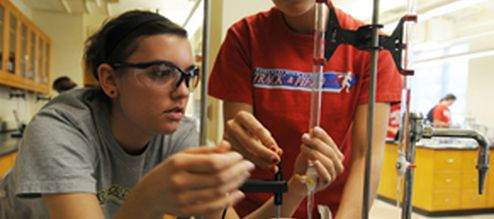Document Type
Article
Publication Date
8-1996
Publication Source
Language and Learning Across the Disciplines
Abstract
Proofreading, editing, and critique, the customary assessment tools scientists use to evaluate professional journal articles, grant applications, and any other writing, can be applied equally well in introductory science instruction. Such feedback is, in fact, crucial to growth and development. When learning anything new, students and faculty alike rely heavily on sources other than themselves (‘external editors’) to assess their understanding as they develop self-assessment skills (or ‘internal editors’). Although they rarely describe it in these terms, faculty nonetheless assume that students have developed and refined their internal skills by the time they take examinations and write term papers. Unfortunately, science instructors traditionally provide little meaningful assistance or rationale for students to get to that point. This is in part because we faculty have already developed and deploy our professional skills so tacitly. To a degree, individuals who become faculty members probably follow paths of least resistance, the ones along which they were successful by virtue of their ‘natural aptitude’. What some instructors intend to be their best advice to students can be wholly inadequate if it only reflects on the surface aspects of what they did as students: “do lots of problems,” “write lots of prose,” “sit alone and wrestle with the ideas.”
One of the things we faculty do quite naturally in our professional lives is to rely on external input. Having developed any idea to whatever limit we are able to achieve sitting alone in our workplaces with our internal editors and our reference sources, we next try out the ideas on our colleagues. Expressing our understanding to others is always a teaching activity since we are revealing our interpretation of some aspect of the world to another individual, testing the interpretation against another’s point-of-view. Faculty share a common experience that they describe in familiar terms: “I never really learned it until I had to teach it.” Perhaps what we also mean is that we actually think about our ideas in new ways when we are consciously aware of the fact that we need to describe them to someone else. In writing as well as speaking, attention to the needs of the audience is critical to clarity in the expression of meaning through the use of information (1). Learners learn differently, perhaps even more effectively, when they anticipate the need to express their understanding to someone else. For students, the most common example of this type of anticipation is in preparation for a written or oral examination. This perspective is not at all limited to expository writing and speaking, the usual modes of expression in the physical sciences; revealing internal perspectives represents +expression+ regardless of its modality, and does not favor writers and orators over thespians, pianists, painters, ballerinas or chanteurs.
Inclusive pages
67-86
ISBN/ISSN
1091-7098
Document Version
Published Version
Copyright
Copyright © 1996, Illinois Institute of Technology
Volume
1
Peer Reviewed
yes
Issue
3
eCommons Citation
Coppola, Brian P. and Daniels, Douglas S., "The Role of Written and Verbal Expression in Improving Communication Skills for Students in an Undergraduate Chemistry Program" (1996). Chemistry Faculty Publications. 110.
https://ecommons.udayton.edu/chm_fac_pub/110




Comments
In January 2004, Language and Learning Across the Disciplines merged with Academic.Writing to form Across the Disciplines. Its contents are open access, licensed under the Creative Commons Attribution, Noncommercial, No Derivatives license.